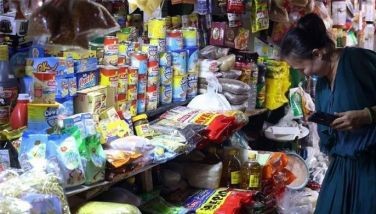Bloody Color, Bloody Business
The red stones from the country formerly known as
The country’s military rulers rely on sales of precious stones such as sapphires, pearls and jade to fund their regime. Rubies are probably the biggest earner; more than 90 percent of the world’s rubies come from
International outrage over the generals’ brutal crackdown on pro-democracy rallies encouraged the European Union this week to consider a trade ban on
There is also pressure in
But in neighboring
“People are unhappy about what’s going on but they are not angry enough to stop buying rubies,” said Pornchai Chuenchomlada, president of the Thai Gem and Jewelry Traders Association.
“If they killed a lot of people like they did in 1988 we might consider banning their products,” said Pornchai, adding that he personally bought little from
Official media say 10 people were killed when soldiers fired on protesters, including Buddhist monks, in downtown
The junta killed an estimated 3,000 people during the last major uprising in 1988.
The official expositions, held twice a year in the tropical heat of
The state holds a majority stake in all mining operations in
Conditions in the mines, off-limits to outsiders, are reported to be horrendous.
Debbie Stothard of the Alternative ASEAN Network on
“Heroin is given to people at the end of the working day as a reward,” said Stothard. “Young people go off to the mines with big hopes and dreams and they come back to die.”
“These rubies are red with the blood of young people.”
Revulsion
Couples buying engagement rings often now ask where the diamonds come from since last year’s
But even during the late 1990s, when war was still raging in
Brian Leber, a third generation jeweler from the
“I think it’s more important to sleep at night,” said the 41-year-old who founded The Jewelers’ Burma Relief Project, an organization that supports humanitarian projects in the country.
Although the
Leber is hopeful last week’s brutal crackdown will convince
“For the time being, Burmese gems should not be something to be proud of. They should be an object of revulsion.”
In
“This is a Buddhist country. I was expecting the price of rubies to drop dramatically after they shot at the monks, but I’m beginning to think these people are hypocrites,” said one Bangkok-based jeweler, who declined to be named.
“It’s the only country where you can get really top quality rubies, but I stopped dealing in them. I don’t want to be part of a nation’s misery.”
“If someone asks for a ruby now I show them a nice pink sapphire.”
- Latest
- Trending


















